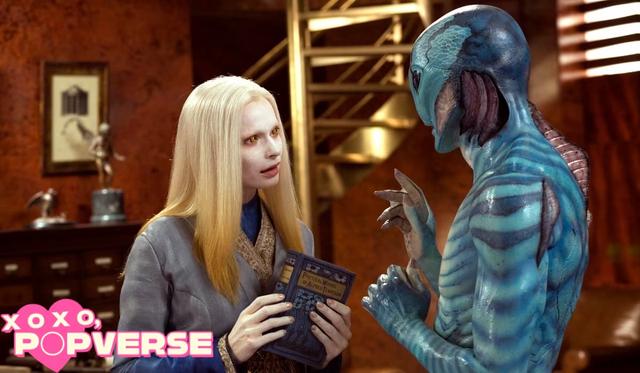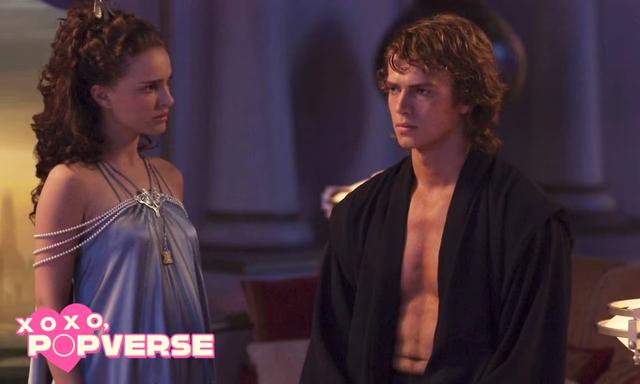If you click on a link and make a purchase we may receive a small commission. Read our editorial policy.
Inside the success of Pokémon with the person who literally wrote the book on the monster-hunting franchise
How Pokémon taught a generation to catch them all - an interview with the author of Monster Kids.

Pokémon wasn’t just the last great cultural event of the second millennium – it was the birth of a new global mindset which raised a generation. The social connectivity, the collective drive, the encyclopedic creature knowledge, and above all the drive- nay, the imperative- to 'catch ‘em all' would become the foundation of crucial pillars in the millennial mindset. 6:00 AM wakeup calls to catch those first episodes as they aired on TV. Smuggling cards as contraband into your school to trade for that complete binder. The Game Shark you got at Toys R Us to hack your save file for a flying Pikachu, only to find your save file irrevocably corrupted. For millions of us, these are core memories. And how it happened was no accident.
All of the factors leading to the formation and fostering of that monster-catching generation- not just Pokémon, but its many equally important rivals and imitators- are the subject of Monster Kids: How Pokémon Taught a Generation to Catch Them All, a comprehensive historical account by Daniel Dockery, with original illustrations by José Elgueta.
Presented with the opportunity to talk to the man who has literally written the book on Pokémon, we had a few important questions for the professor.

Popverse: Up top, let's settle this once and for all. How exactly would you advise people to pronounce the word 'Pokémon'? The hard 'e' is just wrong, but a hard 'aye' feels too harsh.
Daniel Dockery: So, I don't begrudge anyone saying 'Poke-aye-mon' or 'Poke-a-mon.' However, I will draw the line at 'Poke-ee-man.' Leave that pronunciation with parents and preachers back in 1999.
Let's talk a little bit about Pokémon's surprising Ultraman lineage. In the book, you describe how the capsule technology that's core to the series is derived from this '60s Japanese TV series. I’d like to know more about that connection. Is this also what gives us 'Capsule Corp' in Dragon Ball?
So, one thing about early Pokémon is that there's a pretty big mix of 'aha! So that's where that came from!' and little inklings of inspiration filling in everywhere. The Ultraman capsule thing is in the latter category. I don't know if it's the exact source of Pokémon's most famous mechanic, but [Pokémon creator, Satoshi] Tajiri certainly thought it was cool from a young age and liked it enough to mention it as formative later.
As for Dragon Ball's Capsule Corp, I have no idea! It very well could. [Dragon Ball creator, Akira] Toriyama does seem to really like Ultraman.

Considering that the games were barely a thing in the US at the time of the anime's stateside debut, how do you think Pokémon was able to draw young American audiences to tune in for it at six in the morning?
Well, the games hadn't been released yet - it would be about two and half weeks after the anime before the games showed up. But the easy answer is - word of mouth and MARKETING. 4Kids used every connection they had and every last advertising dollar they could spend (or borrow from Nintendo of America) to get this thing promoted on TV early on. It became a sort of "water cooler" event watch for elementary schoolers - Once something becomes "can't miss" like that, you'll wake up at 6.

In researching Pokémon history, you must have come across a lot of apocryphal rumors about how to obtain certain mythical or completely non-existent Pokémon. I know I did, in the early internet. What are some of your favorites?
There are SO many. The most famous one is obviously the Mew under the truck, but my favorites were getting a Dragonite to level 100 and then, after checking off a few other requirements, it evolves into Yoshi, and putting a level 100 Blastoise and a level 100 Venusaur into the first two slots in your party and then taking them to the top of Pokémon Tower so they evolve into VENUSTOISE, the Gastly hallucination from the ‘Ghost of Maiden's Peak’ episode.
On a related note: When I was visiting my Israeli cousins in 2007, they described a Pokémon game to me that was very clearly some kind of weird bootleg cartridge. Pokémon Opal or something. Have you played any of those?
I've toyed around with them, but I've never really put much time into one. I think Pokémon game mods can be very cool, though. They're games built around pure discovery so to see fans combing through code and capabilities and exploring different ways to harness adventures feels like a pretty natural extension of the experience.

There's an extensive section in Monster Kids about the qualitative differences between Pokémon and Digimon. How would you describe the kind of person who would prefer Digimon to Pokémon?
So, I don't know if you can differentiate between 'Pokémon people' and 'Digimon people,' because many that I know who are fans of one have at least a bit of interest in the other. That said, I find that, due to the nature of the franchise, Digimon fans tend to be much more into the ebb and flow of its change and evolution. Pokémon fans seem much more engaged in what they consider to be a truer Pokémon experience, where certain aspects feel like the romantic ideal of the adventure.
That’s a good note, and one we’ll get back to in a bit. But while we’re comparing franchises: The Pokémon card game was developed by Magic: The Gathering makers Wizards of the Coast, while the Duel Monsters game of Yu-Gi-Oh! is directly based on Magic itself. But in my experience, the fandom around the Pokémon card game was always focused more on collection of the cards, while the latter Yu-Gi-Oh! phenomenon was more grounded in strategic play and deck building. Is there something to that, or did I just get older as the latter came in fashion?
I mean, that's definitely how it was understood on a business basis, at least in the US. 4Kids had that in mind when promoting them. So I wouldn't say that you're too far off there. What certainly helps grease the wheels though, is that Yu-Gi-Oh! is a little faster paced on a pretty inherent basis, especially the early game, while Pokémon battles are more deliberate and sometimes painstaking. There's a great video by Tama Hero about replaying the Pokémon TCG Game Boy game where she looks into that.

With the incredible runaway success of the series, it's hard to believe that GAME FREAK ever intended Gold and Silver to be the final Pokémon games. Among all the fanfare, how could they even imagine that? Do we have any idea what they would have done afterward, if that was really the end?
So, there's a bit of division over whether or not they were actually supposed to be the final games. Pokémon Company President Ishihara thought that they'd be his last hurrah with Pokémon and that he'd move onto other things in the new millennium and I'm honestly not sure what that would've meant for the franchise. That said, if any main series game would've performed terribly back then, it might've spelled the end of Pokémon, especially with Gold/Silver considered the 'ultimate' experience at the time. So if Gold/Silver had ended the series, I have no idea what would've happened. Probably a revival of some sort a few years later. The early Pokémon games would've been too successful to ignore for too long.
You talk about how, unlike protagonist Ash Ketchum in the Pokémon anime, the main players of Digimon were afforded the chance to grow up. Is that something Ash can ever do, or does the nature of Pokémon truly demand he remain 10 forever? Can this kid ever catch a win?
Well, he has! Especially recently, since he won the Alola League and is now battling Pokémon champions from around the world. However, I don't think you can look at winning in the Pokémon anime as growing up. I believe, no matter what he wins or what titles he holds, Ash will always be learning pretty basic lessons about friendship, benevolence, patience and Pokémon. I think that's the core of his character - that spirit of a ten-year-old, one totally divorced from his accomplishments.

Finally, because I’ve read the book and you're clearly dying for an excuse, you’ve got one chance to pitch our readers on why they should check out the distant Pokémon franchise cousin Medabots.
Because it's pretty gorgeous at times. The animation and character models are so kinetic, and you don't really have to jump through any hoops with your own nostalgia to appreciate that. Some solid work was done there and it's consistently underrated.
Before you go looking up Medabots, though, make sure to seek out Monster Kids through online retailers and bookstores everywhere. To catch it is your real test, to read it is your cause.
Follow Popverse for upcoming event coverage and news
Find out how we conduct our review by reading our review policy
Let Popverse be your tour guide through the wilderness of pop culture
Sign in and let us help you find your new favorite thing.
















Comments
Want to join the discussion? Please activate your account first.
Visit Reedpop ID if you need to resend the confirmation email.